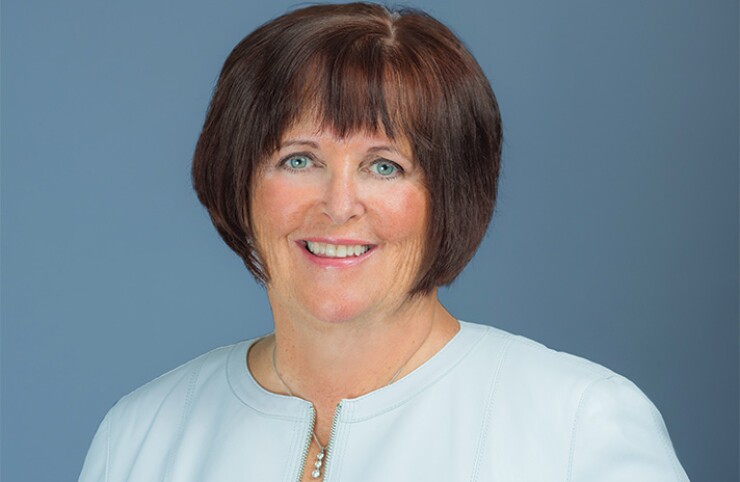CEO, Synchrony Financial
Margaret Keane believes companies have a moral obligation to prepare their employees for the jobs of the future.
As artificial intelligence advances, new jobs will be created, while others will be reinvented or disappear. That means companies need to invest in educating and training their employees so they can meet the demands of an evolving economy, said Keane, the chief executive of Synchrony Financial.
“It’s the people who are the ones designing, training and operating AI systems,” she said.

Her $106.4 billion-asset company is trying to be proactive by helping employees earn a degree. It offers up to $20,000 for full-time employees and $5,000 for part-time employees per year for tuition reimbursement for higher education degrees. Employees can pursue a new degree or complete one they couldn’t finish previously.
The areas they can study depend on the type of role that fits into their career trajectory. This year the program was expanded to cover degrees in the education and health care fields, since there is a growing demand for jobs in those areas. Since 2015, the company has reimbursed almost $10 million to employees.
Synchrony is also piloting boot camps with local tech talent organizations like Thrive to offer employees training in coding, software and IT. “It’s important for all of us to actively pursue new skills to ensure a better future for ourselves and the company,” Keane said.
In line with that thinking, Keane is embracing AI as a way for Synchrony — which provides private-label credit cards for retailers such as Amazon and Sam’s Club — to improve its business.
See the most recent rankings:
·
·
·
The Stamford, Conn., company has created a platform for real-time machine learning models that can make credit decisions in seconds. Sydney, an AI-enabled virtual assistant, can answer text-based questions, such as inquiries about new account openings and payment options, for cardholders. And, to improve the employee efficiency, Synchrony is using robotic process automation for routine tasks.
Keane made the case
The focus on technology ties in with Synchrony’s growth push. Keane gave up her president title in May, appointing Brian Doubles, formerly the chief financial officer, to the role, so he could focus on accelerating growth initiatives. He is now responsible for business strategy, venture investments, acquisitions, marketing functions such as new product introduction, and the expansion of Synchrony’s direct-to-consumer banking strategy.
Synchrony had its most profitable year in 2018, earning $2.8 billion, a 44% jump from 2017.





